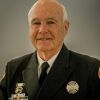Throughout the years, I have often drawn comparisons between the U.S. fire service and the U.S. military. Both are trained to handle and react to emergencies; both rely heavily on teamwork; both are a fraternal; both use a chain of command; and both must be innovative on the fly to handle new or unanticipated challenges.
For these and other similar reasons, many departments such as North Hudson, N.J., have found that military veterans usually make good firefighters.
During a recent visit home, our oldest son and I had an interesting discussion while taking a walk in our neighborhood. Dale is a captain in the U.S. Navy, as well as a career certified Virginia firefighter.
Earlier in his Navy career, he also served as a Firefighter and EMT for both the Ponte Vedra, Fla., and Virginia Beach, Va., fire departments when not at sea. Later while stationed at the Pentagon during the 9/11 attacks, he used his training to attend to the wounded and to help suppress the fires.
On that walk our discussion centered on the use and need for the military to rely heavily on its reserves (including the National Guard) to perform its mission. We also discussed how many of those deployed to Iraq or Afghanistan in recent years have been from reserve units.
The answer quite simply is the military today would have difficulties meeting their mission and worldwide commitments without the help of the reserves.
History of reserves
We have all seen numerous news stories that show a community welcoming home a returning reserve unit or how individual families welcome home a returning family member. After Vietnam, two things changed the U.S. military.
First, with the elimination of the Selective Service, or draft, the number of active duty personnel in each branch of the military was greatly reduced. The reduction in forces was second only to the downsizing that occurred after World War II.
Second, the military began to plan around the reserves to augment their regular forces should there be any extended military engagements or conventional war. In fact, during Operations Desert Shield and Desert Storm in the 1990s, the reserves were called upon to play a pivotal role in driving the Iraqis out of Kuwait.
During those intervening years between Desert Storm and the 9/11 attacks, the responsibility of the reserves also included some highly specialized technical roles.
Specialized training
For example, the USAF Reserve continues to play a daily role in the tanker refueling of aircraft deployed around the world. The Army, Navy and Marines have specialized reserve units ranging from mountain warfare to encrypted communications.
In fact, the lines between active and reserve duty are so intertwined that the U.S. Navy no longer distinguishes whether a member is either a regular or reserve officer nor does it use their traditional term USNR. Rather, every officer is simply assigned to the USN.
So what does this mean to the U.S. fire service? Our discussion centered on the possibility that the fire service would stop making a distinction between career and part-time or volunteer firefighters.
What if instead the fire service started using the term “reserves” for any non-career firefighter similar to how the military uses its reserves and how the fire service throughout the United Kingdom uses the term “retained firefighters” for those not serving full time?
The mission of the U.S. fire service is the same whether career or reserve. While majority of our country’s population remain covered by career firefighters, the majority of the country’s area and natural resources are covered by reserve firefighters.
The benefits
One immediate benefit to a name change might be to remove the rivalry associated with one group or the other and better unify the over 1.2 million firefighters serving in the United States.
In January, The Washington Post published an example of this rivalry in its story about Prince George’s County, Md., perhaps the largest combination department. The story centered on the increased number of career firefighters and the infringement felt by the volunteers.
This is not a new story; in fact it is a continuing story in Prince George’s that I recall as far back the 1990s.
With the growing respect for our military reserves and their increased importance in the daily defense of our country, could a similar scenario benefit the fire service? How could operations improve if there were a regular integration of both groups available for daily operations, as well as major incidents or national emergencies?
What if some reserve groups in addition to their standard fire and EMS certification also trained in special operations such as the military’s reservists and be available to immediately supplement or augment career units anywhere when needed? How might this concept better prepare and provide valuable experience to our next generation of firefighters?
It may be time to discuss how the reserve concept can be applied to the fire service for the benefit and subsequent respect of all.












